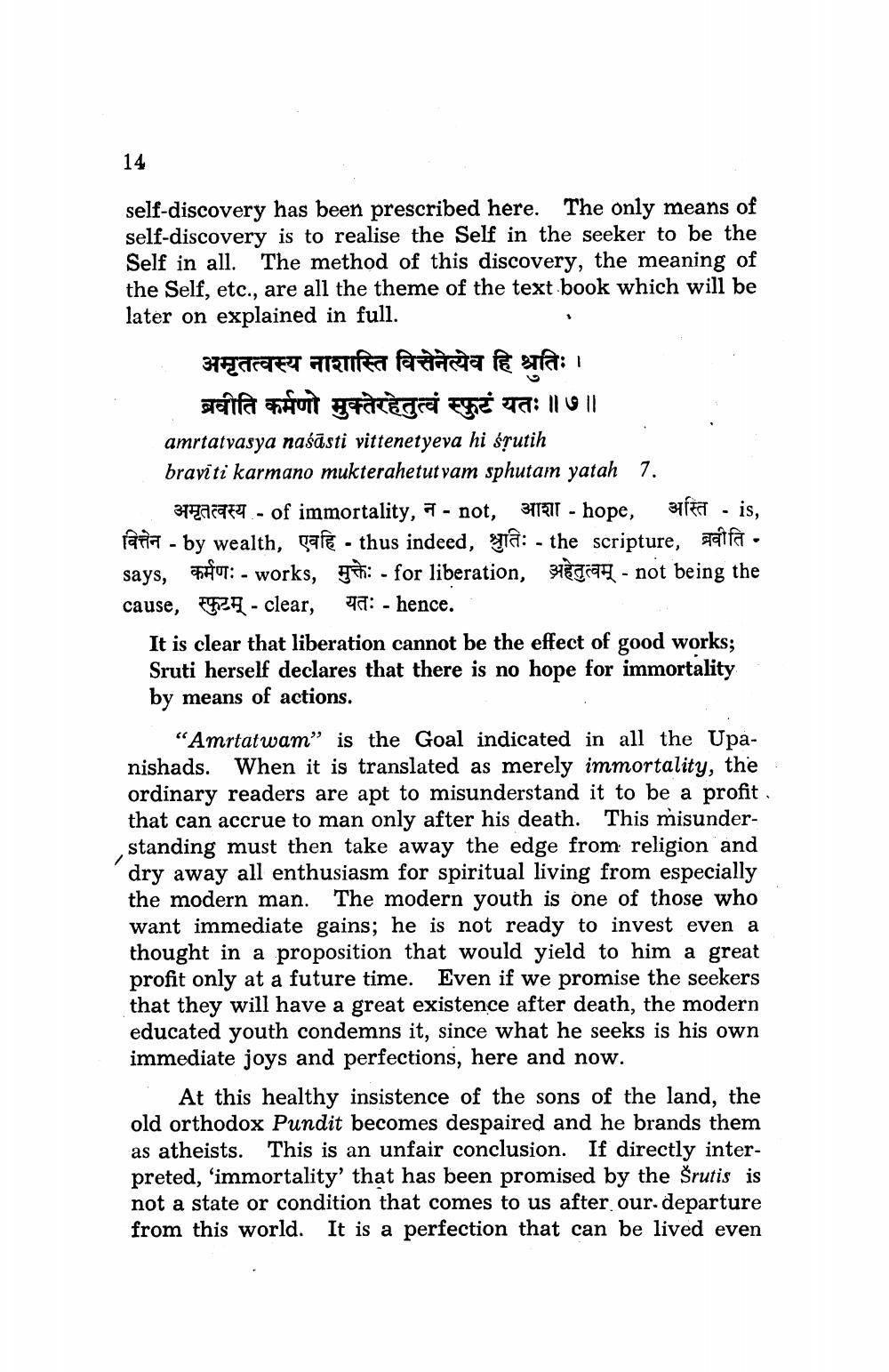________________
14
self-discovery has been prescribed here. The only means of self-discovery is to realise the Self in the seeker to be the Self in all. The method of this discovery, the meaning of the Self, etc., are all the theme of the text book which will be later on explained in full.
अमृतत्वस्य नाशास्ति वित्सेनेत्येव हि श्रुतिः ।
ब्रवीति कर्मणो मुक्तेरहेतुत्वं स्फुटं यतः ॥७॥ amrtatvasya naśāsti vittenetyeva hi śrutih bravīti karmano mukterahetutvam sphutam yatah 7.
Bracatan - of immortality, 7- not, 31781T - hope, Bufet - is, वित्तेन - by wealth, एवहि - thus indeed, श्रुतिः - the scripture, ब्रवीति • says, कर्मणः - works, मुक्तेः - for liberation, अहेतुत्वम् - not being the cause, 26 - clear, 47: - hence.
It is clear that liberation cannot be the effect of good works; Sruti herself declares that there is no hope for immortality by means of actions.
“Amrtatwam" is the Goal indicated in all the Upanishads. When it is translated as merely immortality, the ordinary readers are apt to misunderstand it to be a profit that can accrue to man only after his death. This misunderstanding must then take away the edge from religion and dry away all enthusiasm for spiritual living from especially the modern man. The modern youth is one of those who want immediate gains; he is not ready to invest even a thought in a proposition that would yield to him a great profit only at a future time. Even if we promise the seekers that they will have a great existence after death, the modern educated youth condemns it, since what he seeks is his own immediate joys and perfections, here and now.
At this healthy insistence of the sons of the land, the old orthodox Pundit becomes despaired and he brands them as atheists. This is an unfair conclusion. If directly interpreted, 'immortality' that has been promised by the Šrutis is not a state or condition that comes to us after our departure from this world. It is a perfection that can be lived even




